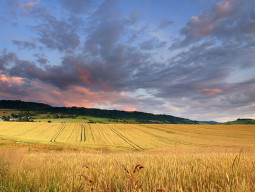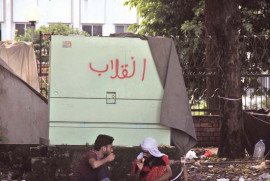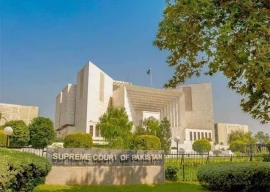
“Land management is a political issue and it seems as if it is impossible for a civilian government to take back thousands of acres of land from landlords,” said Jami Chandio, a writer and civil society activist.
Addressing the participants of the seminar, titled ‘Land Governance’, organised by the Society for Conservation and Protection of Environment (Scope) and Oxfam NOVIB at the Beach Luxury Hotel on Thursday, speakers discussed how unequal distribution of land has created food insecurity in Pakistan.

Chandio was of the view that even though land reforms need to be made, reforms through the parliament are not possible. “In the past, land reforms have only been carried out for vested interests and the changes in the laws have not benefited the common people,” Chandio explained.
Scope CEO Dr Tanveer Arif also discussed the priority of politicians and said that ‘neo-feudalism’ will emerge in the country as ‘outsiders’ are being allotted hundreds of acres of land in various parts of the country. “This is not a favourable situation for those who have no land,” he said. “The ones who have been given these vast pieces of land have the power and do not want implementation of land reforms.”
Taj Marri, a peasant movement’s activist, said that struggles to provide farmers their due rights will not succeeded until political parties come forward and take responsibility, feeling that non-governmental organisations cannot bring about change on their own. “The peasants have to unite themselves as well,” he added.
According to data provided by Scope, five per cent of landlords possess 64 per cent of total farmland, and 65 per cent of small farmers own a mere 15 per cent of land between themselves. The data also claimed that around 67 per cent of the country’s households do not own any piece of land. The landless are mostly engaged in informal activities that absorb a large majority of unskilled, uneducated - or less educated - poor individuals.
The data added that 40 per cent of the land is owned by only 2.5 per cent of the households, and 24 per cent is owned by only 0.4 per cent of the households. Women own less than three per cent of the land, while their share in agricultural activities is around 70 per cent.
Environment journalist Amar Guriro claimed that climate change is a major contributor to food insecurity in the country. “We have to address environmental issues as they create a number of problems that are directly linked with the common people,” he said.
Published in The Express Tribune, September 19th, 2014.



























1714129906-0/Clint-Eastwood-(1)1714129906-0-270x192.webp)



COMMENTS
Comments are moderated and generally will be posted if they are on-topic and not abusive.
For more information, please see our Comments FAQ